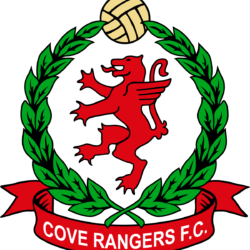His performances were characterized by an impressive goal-scoring record, agility, and determination. With each match, he demonstrated an uncanny knack for finding the back of the net. This explosive start attracted attention from top-tier clubs, ultimately leading to a move to Real Zaragoza in 2003 U888.
Ascendancy to Stardom Success with Valencia David Villa
After establishing himself in the lower leagues, David Villa’s transfer to Valencia CF marked a turning point in his career. It was here that he truly began to shine, elevating his performance to new heights and making a name for himself in the world of football U888 Cockfighting.
Establishing Himself as a Key Player
Upon joining Valencia, Villa faced the challenge of adapting to a more competitive environment. However, his hard work and determination paid off; he quickly became an integral part of the team. With his unique playing style—combining speed, skill, and an instinct for goal-scoring—he began to light up La Liga.
Villa’s impact was immediate. He ended his first season as the club’s top scorer, a feat that endeared him to fans and solidified his place as a key player in the attacking lineup. His partnership with fellow forwards provided the team with diverse attacking options, making Valencia a formidable force in domestic competitions.
Domestic Glory and Individual Accolades
During his time at Valencia, Villa helped secure numerous trophies, including the Copa del Rey and the Supercopa de España. However, his individual accolades are just as impressive. He was consistently among the league’s top scorers, earning recognition as one of the best strikers in Europe.
His prowess did not go unnoticed in the international arena. Villa’s performances in La Liga drew the attention of the Spanish national team selectors, eventually leading to his debut in 2005. His inclusion in the squad for major tournaments would soon prove pivotal for both his career and the legacy of Spanish football.
Leaving Valencia for FC Barcelona
In 2010, after several successful seasons, Villa made a high-profile transfer to FC Barcelona. The move was seen as a culmination of all his hard work and dedication. Joining a team of superstars, Villa embraced the opportunity to compete at the highest level.
At Barcelona, Villa experienced unparalleled success. He became an integral part of a team known for its tiki-taka style and incredible synergy. Playing alongside legends like Lionel Messi and Xavi Hernandez, Villa’s role was vital in maintaining the team’s relentless attacking play.
Triumph and Challenges: International Career
While Villa’s club career flourished, his path with the Spanish national team was equally compelling. His international journey is marked by triumph, heartbreak, and historic moments that shaped his legacy.
Early Days with La Roja
David Villa initial years with the national team were fraught with competition for places in the starting eleven. Despite being a key player at Valencia, securing a regular spot in the national setup proved challenging. However, his perseverance paid off, and he was called up to represent Spain in major tournaments.
His breakthrough came during the UEFA Euro 2008, where Villa was instrumental in helping Spain clinch their first major trophy in 44 years. Villa scored four goals in the tournament, showcasing his ability to perform on the big stage. His contributions were celebrated, marking the beginning of a golden era for Spanish football.
World Cup Glory in 2010
The pinnacle of David Villa international career came during the 2010 FIFA World Cup in South Africa. He emerged as Spain’s leading scorer, netting five goals throughout the tournament. His stunning finishes and clinical striking played a significant role in Spain’s historic campaign, ultimately leading them to victory.
What made Villa’s performance even more remarkable was the pressure he faced. As Spain navigated through difficult matches, Villa’s experience and poise shone through. Each goal he scored was a testament to his resolve and ability to deliver under pressure, reinforcing his status as a national hero.
Injury Struggles and Retirement
Unfortunately, like many athletes, Villa faced injury setbacks during the latter stages of his international career. While he continued to contribute to the national team, injuries limited his participation in critical matches. Despite these challenges, Villa remained committed to inspiring the next generation of players.





